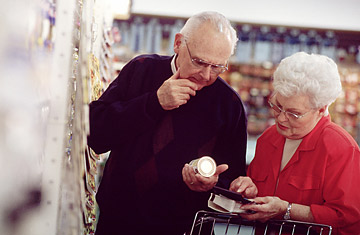
(2 of 2)
Schwarz and Song then repeated the study with a new group of students and a new group of words. This time, the subjects were told that the invented names belonged not to food additives but to amusement-park rides — something for which an element of danger is often part of the appeal. The results were similar: a ride with a name like the Chunta was perceived to be a less dangerous choice than one named the Vaiveahtoishi. But the Vaiveahtoishi was also described as likely to be more exciting. The lesson for marketers is obvious. (Read "Getting Closer to a Flu Supervaccine.")
"Insurance companies and food manufacturers may value safety, and easy-to-process names would appeal to their consumers more," says Song. "Adventure-travel packages and risky sports such as bungee jumping might want to use harder names." When a product like the Scirocco folds, it might have been done in not just by the nonintuitive pronunciation of the name (shi-rock-o), but also by its definiton: a hot desert wind. That's a double-dose of danger that could simply be too much for safety-conscious consumers. (See TIME's special report on the environment.)
Names don't have to be difficult to seem dangerous, of course; sometimes manufacturers earn their menacing rep rightly. There's nothing inherently scary about names like Morris or Philip, but flip them around and stick them together, and pretty soon you're thinking about lung cancer. The Altria Group, on the other hand — which is the new corporate handle by which Philip Morris prefers to be known — means nothing at all, and that is precisely the idea.
Still, the research does suggest that when you start out with a complicated name, you have a steeper hill to climb, and that goes for abbreviations and initials too — something that Wall Street, which sells what may now be the most dangerous products around, might want to keep in mind. Schwarz cites a 2006 study in which investigators found that on the first day of trading, newly issued stocks with simple ticker symbols like KAR sold better than those with less pleasing ones, like RDO. "While the authors did not argue about risk perception," he says, "I believe risk may be underlying the effect."
And what about the baby-naming issue? Names fall in and out of vogue, and there are a lot that have probably been shelved for good — your Fidels, Benitos and Osamas, for example. But what about blameless names that are hard to get out but may be worth the effort? Eleutheria, after all, is a Greek name that means free. The bad news for kids whose parents couldn't keep it simple is that uncommon monikers do present problems — at least at first. "People may not necessarily be perceived as more dangerous," Song says. "But if all you know is their name, they may seem riskier to approach or hire."
That, happily, changes as you get to know the person behind the name. Philip Morris may not deserve a second chance, but Guillermo and Fiametta certainly do.
